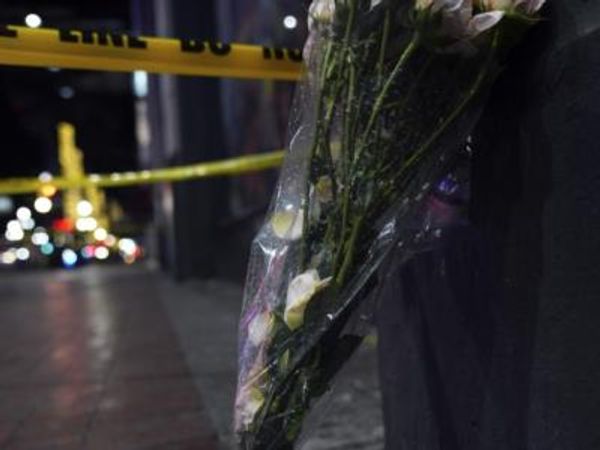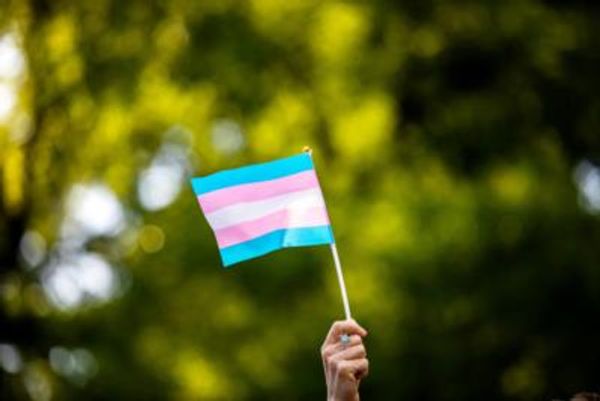
This is part 11 in a series. For the rest of the series, go here.
Simone McGurk, Western Australia’s minister for women’s interests and child protection, has issued an open invitation for former residents of the Pentecostal-linked Esther Foundation to put their concerns directly to her.
The minister made the offer in response to serious allegations of religious-based abuse made by former Esther residents, published in a Crikey investigation over the past two weeks.
Crikey reported that Prime Minister Scott Morrison visited the Perth-based organisation in the weeks before the 2019 federal election to announce a $4 million federal grant to back the foundation’s work with teenage girls. Our investigation revealed a murky process behind the approval of the grant, with the trail leading directly to the prime minister’s office. The Esther Foundation is located in the marginal seat of Hasluck held by the Liberal Party’s Ken Wyatt.
In a statement to Crikey, McGurk said that the claims made by the women in Crikey’s reports were concerning, “particularly given that some of them were children when they were allegedly mistreated”.
“All people, but especially children, have the right to feel safe and be treated with respect wherever they are,” she said.
“I urge these women to report their experiences to police to ensure any criminal matters can be fully investigated.
“Should any of these women wish to approach me to discuss their concerns, I welcome them making contact.”
McGurk’s offer opens the way for women to find some resolution — as well as bring some accountability — for harms done over the decades that the Esther Foundation (widely known in Perth as Esther House) has operated.
Esther Foundation’s founder, Patricia Lavater, began her work with Esther back in the 1990s when the Western Australian government’s community services department would refer teenage girls to Esther House for temporary accommodation.
One woman who was there at the time remembers the conflicted feeling she had. As a 14-year-old with nowhere to turn, Esther House gave her love and care that she had not known. On the other hand, it came with religious strings attached.
“I was told not to mix with anyone who did not share their particular Christian beliefs. This included my friends and family. They told me that if I mixed with non-church people I would go to hell. It was incredibly isolating.
“I still have a vivid memory of being in church with Patricia where she was speaking in tongues to me and trying to get me to speak in tongues,” she said.
Crikey has also received information relating to the recent operations of the Esther Foundation — up to four years ago — with one teenage girl writing that Esther needed to be “exposed for how it really was”.
The lesson has been that if you want action then it is not worth bothering with the Pentecostal church movement itself. (The Esther Foundation has close links with several of Perth’s Pentectostal churches.)
One former resident, Cara Phillips, documented the claims of Esther’s former residents and sent the information to pastors in the Perth area. Her attempts to blow the whistle fell on deaf ears. “No one even answered,” she said.
Phillips also provided the documentation to the Esther Foundation itself. That was at the end of 2019 — six months after Scott Morrison visited Esther in person to announce a $4 million grant to the organisation prior to the last election.
The foundation parted ways with Lavater after it took a close look at how it had been run under its founder. Publicly, the foundation only gave sketchy reasons for Lavater’s departure, cloaking it in the mollifying language of the devout: there had been a “difficult season of change”, Esther said, as the organisation “transition[ed] from the old to the new”. Esther’s board announced too that it would recognise “the years of dedication” of Lavater, with a service recognition award plaque to be retained on the premises.
But Phillips noticed something odd. The farewell statement she received, written in Lavater’s name, contained an apology and was different to the anodyne statement which went to sponsors and backers. When Phillips pointed out the discrepancy, she was told it wouldn’t help for sponsors to know the details of the past.
It meant a vast network of Perth’s powerful and influential had no idea of the reasons for the founder’s departure.
The who’s who of Esther backers and friends has included the Fremantle Dockers football club, the West Australian Ballet, Woodside Energy Employees, ANZ, accounting firm EY, and Rotary. This is but the tip of a large mountain of supporters.
“I felt completely betrayed because I had been trying to believe the new management had made a difference,” Phillips said, “but I saw that protecting the income stream and the church meant more than protecting the women they professed to help.”
The visit of Morrison in 2019 and his personal endorsement had also made it harder to speak out.
“We had always been brainwashed and coached to put forward a perfect appearance when a politician arrived. So it didn’t surprise me that Morrison was there and seemed to be impressed.
“However, it felt like a tragedy too because a grant of that size to the foundation made it even harder for us to speak out. It gave legitimacy to the place that abused us and served to silence the victims,” she said.
Phillips has welcomed the Western Australian government’s offer to hear the stories of the women of Esther.
“It’s amazing,” she said. “It’s hard to believe that some action may actually happen.”
Esther Foundation founder, Patricia Lavater, provided a statement to Crikey in which she “deeply” apologised for “any hurt or trauma” caused to any individuals and offered to address issues in “an appropriate mediated setting”.
If you have any information about this story you would like to pass on please contact David Hardaker via dhardaker@protonmail.com.







